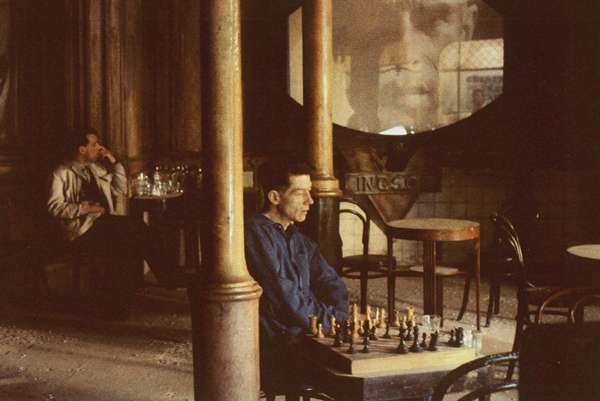 There’s some good in this world, Mr. Frodo. And it’s worth writing about.
There’s some good in this world, Mr. Frodo. And it’s worth writing about.
I’m going to take the boss at his word that the modest objective of Big Hollywood is “to change the entertainment industry. To make Hollywood something we can believe in – again. In order to give millions of Americans hope.” And further: “Until conservatives, libertarians and Republicans…recognize that (pop) culture is the big prize and that politics is secondary, there will be no victory in this important battle.”
But what is it, culturally, that Hollywood can do that will make us believe in it again and give millions of Americans hope? What is it we can do win the battle for pop culture?
It’s nothing Hollywood hasn’t done before. The only problem is, it’s doing far too little of it lately. Which is a shame, because it’s something that Hollywood does better than anyplace on earth.
Hollywood’s gift to America – and the world – is the Hollywood Hero.
Cue laughter from the Left: “How quaint! How primitive! How typical of lowbrow, right-wing culture! We give our Best Picture awards to nihilist movies like No Country for Old Men and Best Actor awards to anti-heroes like Daniel Plainview in There Will Be Blood. No hope for millions of Americans there!”
And yet, when good films come along with good heroic stars, the box-office goes through the roof – The Dark Night, Ironman and Spider-Man trilogy are obvious examples…and conspicuous shutouts for Best Picture.
There is a thirst for heroic characters in America and throughout the world, yet today’s Hollywood elites only seems comfortable with the idea of heroism in a comic book setting. Screenwriters need to relearn the appeal and necessity of the Hollywood hero in every setting imaginable.
If you are a screenwriter or someone who would like to become a screenwriter, you can be the tip of the spear for changing the leftist culture that Hollywood promotes by writing heroic characters that embody traditional American values.
This post, and I hope several more, is addressed to you. I hope to inspire you to write the kind of heroic characters that will push back against the leftist cultural tide that is the reason for Big Hollywood’s existence.
Many of you have probably taken courses in screenwriting and read several of books on the subject. You know about character arcs, emotional beats, and mid-point reversals. Yet, when it comes to putting words to paper, you falter and don’t know where to begin…or how to finish. The trouble is, you may have been taught how to write screenplays, but you’ve never been taught why.
Believe me – once you understand why, you’ll do everything in your power to figure out how.
So let’s begin. But be warned: you’re about to take writing advice from a screenwriter who’s been kicked out of Hollywood.
Screenwriting is an art. Although an artist can use his work to express any idea or feeling he wishes, there are several key ideas that artists throughout human history have returned to again and again. These ideas are philosophical in nature; that is, they are the fundamental questions of human existence that every culture – and every thinking individual – asks:
What is there?
What am I?
What should I do?
All of these are central issues of human existence, which is why they keep popping up time and time again in the arts.
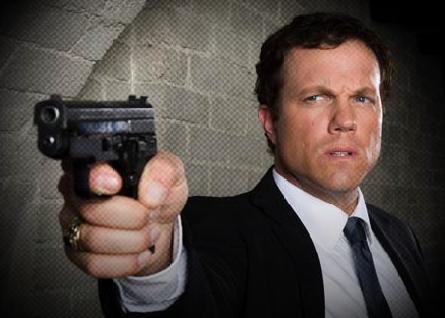 The ceiling of the Sistine Chapel, where the artist Michelangelo attempted to answer all three questions – What is there? What am I? What should I do? – in a single work.
The ceiling of the Sistine Chapel, where the artist Michelangelo attempted to answer all three questions – What is there? What am I? What should I do? – in a single work.
Although artworks such as painting, sculpture and music used to answer each of these questions, screenwriting is especially suited to answering the third question; What should I do?
That’s because screenwriting is a dramatic art. A drama is a composition that uses characters to tell a story – usually involving conflicts and emotions – through action and dialogue.
The author of the story uses the elements of drama as his way of answering the question What should I do? for his audience. He uses them to show by example what people should – or shouldn’t – do.
Storytelling that attempts to answer the question What should I do? will necessarily have to deal with ethics or morality, which is defined as the principles of conduct governing an individual or a group.
When human beings are confronted with a moral choice, i.e., What should I do?, they act in accordance with their values. A value is something we seek to achieve or hold on to. Each man determines for himself what his values are and how to achieve them, leading to his own principles of conduct, often called a code of ethics or a moral code.
Just as every human being has a set of values and a moral code which guides his actions, the screenwriter creates a cast of characters for his story that are also guided by their values and moral code. For the most part, the clash of competing values and different moral codes between the principal characters is what creates the story.
It’s no accident that these two John Travolta posters share a similar image of face-to-face confrontation between the main characters. The advertising agencies know what the public is looking for. The graphics of these posters promise the audience a clash of competing values and different moral codes of the principal characters. In other words…a story!
By showing how his characters deal with moral decisions and their consequences, the author of a story says to his audience, “This is what you should do” or, in a cautionary tale (such as The Godfather), “This is what you should not do.”
At their heart, screenplays are all about the choices that the charters face.
From the Star Wars saga…
“Join me and we can rule the galaxy as father and son.”
…to The Mask of Zorro…
“Now if you want to kill this man, I can help you. I can teach you how…
how to move, how to think, how to take your revenge with honor and live to celebrate it.”
…to The Matrix…
“This is your last chance. After this there is no turning back. You take the blue pill,
the story ends, you wake up in your bed and believe whatever you want to believe.
You take the red pill, you stay in Wonderland, and I show you how deep the rabbit hole goes….”
…the characters of drama are faced with important choices. Making a choice is the essence of drama because it is the essence of human life. Gandalf said it best in The Fellowship of the Ring:
All we have to decide is what to do with the time we are given.
Nothing is more important in our lives than deciding what to do with the time we are given, and then acting on our decisions. Our choices are shaped by our values, and our most important choices are shaped by our deepest values.
Yes, we go to the movies for the pretty girl, the big explosion and the booming soundtrack. But the films that we love – the ones we see over and over again – are movies with storylines that touch our deepest values. We know that we need to make the right choices in our lives, and the best movies inspire us to do just that.
Human beings are not born knowing “what to do with the time we are given.” Each man must discover for himself what his moral choices should be. The dramatic arts are a great aid in this most important task because they crystallize abstract moral concepts into a vivid and compelling form – so vivid and compelling that we hold it in our hearts and spirits, not just in our minds. Films like Star Wars, The Lord of the Rings, and Casablanca enter our souls because they not only move our emotions intensely, but they move our emotions on the subject that is most important to us…what should I do?
In short, our favorite Hollywood movies inspire us. And they inspire us towards heroic values.
The word “inspire” has several meanings. Inspire means to make someone have a particular strong feeling or reaction. In this sense, the best movies are inspirational because they always provoke strong feelings in us. But inspire also has the meaning of to make someone feel that they want to do something…and can do it.
The best movies are inspiring in both meanings of the word. They not only provoke a strong emotional reaction in us, but this emotion makes us want to do something and believe that we can do it.
If the main character is courageous and determined, then we walk out of the theater feeling courageous and determined, too. If the main character finds love, we believe that we can find love, as well. If struggle and sacrifice achieve a happy ending, then we resolve to struggle and sacrifice to achieve our own happy endings.
In this sense, movies that inspire us make us want to emulate the main character of the story, that is, to strive to equal or match what the character accomplishes.
But more than that, there is an underlying moral theme to most Hollywood movies that accounts for their ability to inspire and emotionally connect with audiences world-wide.
When it comes to the question What should I do?, Hollywood says there are a thousand-and-one ways to answer that question. But, no matter what…
Doing the right thing is worth the struggle.
Life is a struggle. Acting morally can often make the struggle harder for you. But in the end, if you want the good to prevail and receive its blessings for yourself, your family and your nation, you have to do the right thing.
The struggles of life can be discouraging. Art is an antidote to discouragement. People need the encouragement that art offers, in particular, the encouragement that drama offers. We need to know that our choices have meaning, that our choices can make a difference in our lives. We need to know that acting morally is worth the struggle. And that’s what Hollywood movies do. That is the inspiration they give to the audience.
Nowhere are these ideas better expressed than in an amazingly audacious yet moving scene in The Lord of the Rings: The Two Towers.
It’s the scene near the end of the movie where, at the ruins of Osgiliath, Faramir and the Hobbits escape from the clutches of a Ringwraith and his fell beast. Under the spell of the Ring, Frodo attacks Sam, nearly plunging his sword into Sam’s neck before coming to his senses. Totally dispirited, Frodo’s resolve weakens. (In the following, I speak of Tolkien as the author, but the filmmakers altered the material and context.)
FRODO: (slowly and with despair) I can’t do this, Sam.
SAM: (getting up slowly) I know. It’s all wrong. By rights we shouldn’t even be here. But we are.
Here, I think Tolkien, through Sam, is summing up the basic problem of human existence: none of us asked to be born into this world, and yet here we are. For good or bad, fair or not, all of us must confront this basic fact of reality…we’re here in this world, and only for the time we are given. And as Gandalf says, while we are here we must decide what to do. There is no escaping our need to make choices.
We can choose to do what we know is wrong, or we can choose to do what we know is right. And our decision to do the right thing can demand a great struggle that may lead us to lose heart and give up the fight to do the right thing. In this scene, Frodo is at the point of giving up…his decision to do the right thing by casting the Ring back into the fire has caused him great hardship and he is losing heart. He wants to stop struggling.
What is Sam’s response to Frodo’s loss of spirit? Sam could answer Frodo is any number of ways, but look at how Tolkien chooses to have Sam reply:
Sam stands and leans against a wall, looking out into the distance.
SAM: It’s like in the great stories, Mr. Frodo. The ones that really mattered. Full of darkness and danger they were. And sometimes you didn’t want to know the end. Because how could the end be happy? How could the world go back to the way it was when so much bad had happened?
Out of all the possible things Sam could say at this moment in the story, Tolkien has him speak about…stories.
That Tolkien chooses this moment in the story to speak about…well, stories themselves…indicates the importance he places on the subject at this critical point of the plot, where Frodo says he can’t go on. This is something Tolkien wants us to pay attention to. Stories have something to do with Frodo and his struggle.
Tolkien has Sam look out into the distance as he speaks…not at Frodo. That’s because Sam is not thinking about the present moment. He’s thinking about the past. His own past. He’s remembering the stories he heard in his youth. The “great” stories…”the ones that really mattered.”
The stories that mattered were about darkness and danger. The great stories were about struggles so intense – against forces so strong – that it seemed impossible that the hero would win. How is it possible for the good to win when evil seems so powerful? And even if victory is achieved, was it really worth all the suffering? When listening to the story, the outcome is in doubt…and a happy, Hollywood ending seems impossible. This is what Frodo is thinking now. And those are the stories that Sam is remembering now. He continues:
SAM: But in the end, it’s only a passing thing, this shadow. Even darkness must pass. A new day will come. And when the sun shines it will shine out the clearer. Those were the stories that stayed with you. That meant something, even if you were too small to understand why.
Tolkien is making several points here. First, that Sam has learned from the stories that the darkness can be overcome, no matter how bleak it looks. There can be a happy, Hollywood ending. In Sam’s childhood stories, the heroes won, and the darkness passed. And when the light returned, it illuminated life making it dearer. The stories where the hero prevailed – where light overcame the darkness – are the ones that mattered to Sam. They “meant something.” These are the stories that he remembers now in a time of crisis, not stories where men failed and heroic struggle was useless against the darkness .
Second, even as a young boy, when Sam really didn’t understand intellectually the full meaning of the stories, there was something in them that touched his spirit. This may be Tolkien’s way of expressing the idea that sometimes we understand things emotionally before we understand them intellectually. Dramatic stories can teach us their lessons by our emotional reaction to them. Even at an early age, human beings can understand the necessity for light to overcome the dark, even if they are not intellectually capable of explaining why. That’s why it’s important for the young to be exposed to heroic stories, even though they may not have a clear idea of why it is necessary to struggle against the darkness. They will feel it in their spirit all the same, as Sam did. Now, as an adult who has experienced light and darkness first hand, Sam at last understands the importance of the stories of his youth.
SAM: But I think, Mr. Frodo, I do understand. I know now. Folk in those stories had lots of chances of turning back only they didn’t. They kept going because they were holding on to something.
These stories of Sam’s youth were all about one thing: what should I do? And the answer was: struggle to do the right thing. Struggle forward, even when it is tempting to turn back, as Frodo is tempted now. Struggle forward, because there is something you hold on to that that makes it worth the struggle.
FRODO: What are we holding on to, Sam?
SAM: That there’s some good in this world, Mr. Frodo. And it’s worth fighting for.
Or as another not-so-famous writer once said: doing the right thing is worth the struggle, because it will restore the good.
The purpose of those stories from Sam’s past are for just this moment – when Frodo and Sam are tempted to turn back, they find the strength to continue because of what the stories promise. These stories provide the inspiration necessary to continue. It is an inspiration carried not only in their minds, but in their hearts. Tolkien was confident enough to be able to say to his readers, “Just as it was critical for Sam and Frodo to be inspired by stories, it is critical that you find inspiration in theirs.”
Tolkien knew that men need inspiration. We need to know – in our hearts and minds – that, no matter what the difficulty we face, doing the right thing is worth the struggle.
This is the message of Hollywood movies and this is why we love them. But what, specifically, is the right thing to do?
That’s the message of the Hollywood Hero.
I’ll write about the Hollywood Hero next, if you want. Let me know in the comments below!

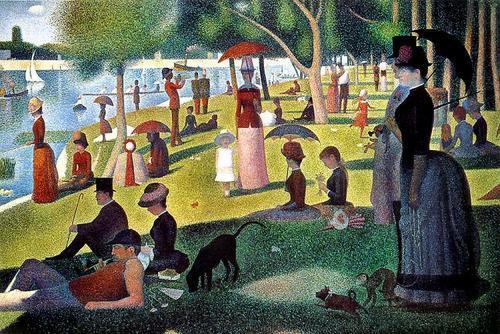
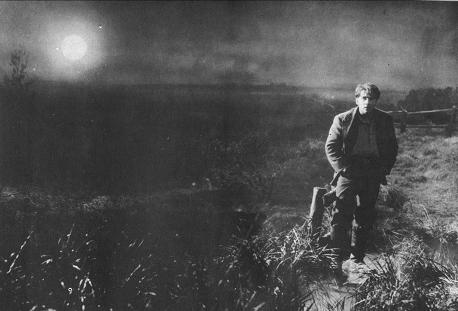
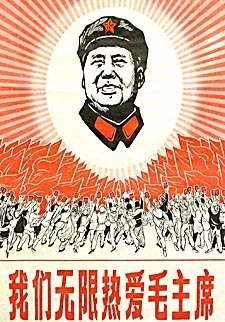
COMMENTS
Please let us know if you're having issues with commenting.